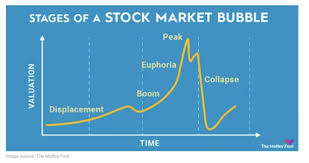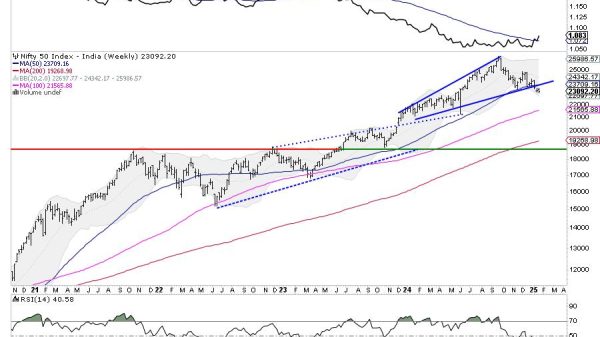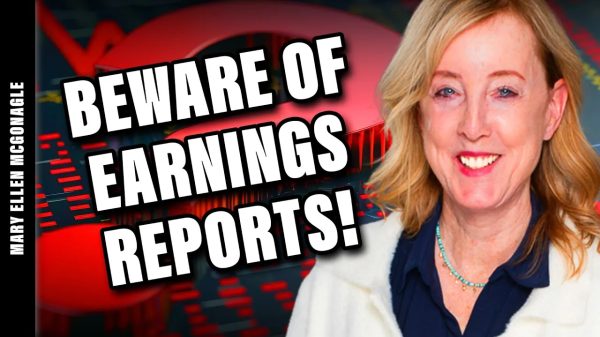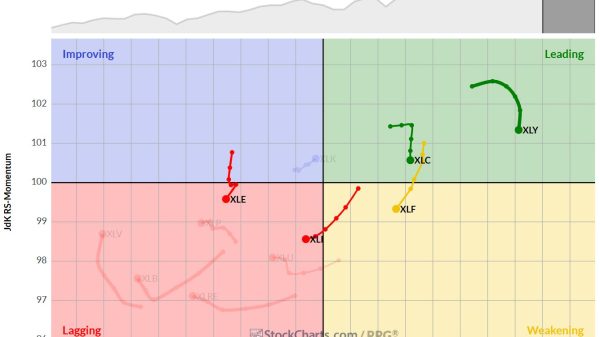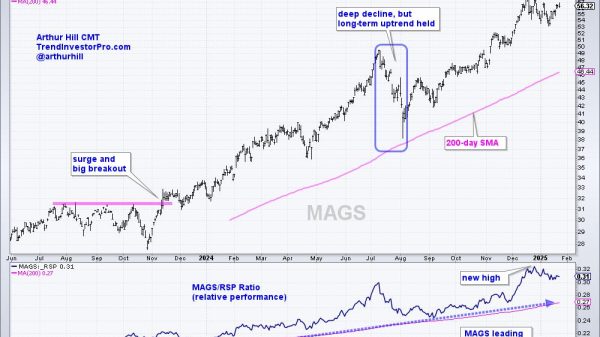The Federal Reserve raised its key federal funds rate 10 times since March 2022 — something it hasn’t done as aggressively since the 1980s.
The central bank hopes that by doing so, it can slow down the economy enough to moderate price growth.
But how does raising interest rates do that, exactly?
When you get a loan from a bank — for example, when you’re buying a house — an interest rate is attached to that loan. The interest rate is the price you pay to borrow the money.
Banks need to borrow money, too. Instead of borrowing directly from other banks, they look to the Federal Reserve — America’s central bank. Its primary role is to provide a safe and reliable financial system for the U.S. by maintaining deposit accounts for banks.
When banks need to borrow money, they look to other banks that have deposit accounts with the Fed that may be in a surplus.
And just as with any other loan, the banks are charged an interest rate for borrowing money. It is this percentage, known as the federal funds rate, that the Federal Reserve helps set with its interest rate announcements.
How the federal funds rate influences parts of the economy
But how could one interest rate have so much influence on the broader economy?
Banks pass on the cost of a higher federal funds rate to their customers when those customers want to access regular lending products.
The best example is the prime rate. This is the interest rate banks charge their most creditworthy borrowers, like large corporations. For several decades now, the rule of thumb has been that the prime rate is equivalent to the federal funds rate plus 3%. So, with the new federal funds target rate at between 5% and 5.25%, the new prime rate at the upper range would be at 8.25%. The percentage difference is supposed to cover the cost of processing a bank loan.
Changes in the prime rate, in turn, drive up the cost of borrowing for all other loan products, like real estate and vehicle purchases, as well as revolving debt such as credit cards. The 30-year fixed mortgage rate hovered above 7% as of July 12.
As the theory goes, if it’s more expensive to borrow money or carry a balance on a credit card, consumers will spend less. When spending declines, demand will fall and, eventually, so will the price of everyday goods.
There is a risk, however. Economists warn the combination of higher borrowing costs, high inflation, and slower growth could tip the U.S. economy into a recession. So the onus is on the Federal Reserve to choose its moves carefully.
Does raising interest rates actually work?
Federal Reserve chairman Jerome Powell has said he is seeking to bring demand more in line with supply. But the global supply chain for a wide array of products has been severely constrained over the course of the pandemic, due in part to strict Covid-19 policies in China where many mass-produced goods are sourced.
The ongoing war in Ukraine has negatively affected the global food supply in addition to the crude oil and natural gas resources that Europe largely depends on.
So, there may only be so much the Federal Reserve can do with the tools it has available.
‘Goods inflation is a trade and geopolitics issue that’s controlled by government as a whole and not the Fed,’ said Derek Tang, an economist at LH Meyer Inc., a macroeconomic consulting group.
‘We’ll have to look to the White House and Congress to act on those issues, whether that means brokering deals with other countries to make sure we have better supply, or have more access to supply,’ Tang said.






